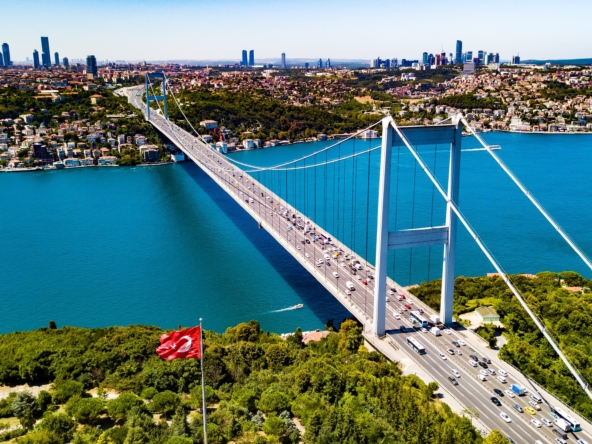High-speed train projects represent a significant aspect of Turkey’s vision for modernization and connectivity, playing a crucial role in shaping the country’s future transportation infrastructure. With its strategic location bridging Europe and Asia, Turkey has recognized the importance of investing in high-speed rail networks to enhance mobility, foster economic growth, and promote sustainable development. Here’s why high-speed train projects are considered the futurity of Turkey:
Enhanced Connectivity: High-speed train projects connect major cities and regions across Turkey, facilitating faster and more efficient travel for passengers and goods. By reducing travel times and increasing accessibility, these projects strengthen connectivity within the country and promote regional integration, thereby fostering economic development and social cohesion.
Boost to Tourism: Improved rail connectivity through high-speed train projects opens up new tourism opportunities, allowing visitors to explore Turkey’s diverse landscapes, historical sites, and cultural attractions with greater ease and convenience. Tourist destinations such as Istanbul, Ankara, Izmir, and Antalya are increasingly accessible by high-speed train, attracting domestic and international travelers and boosting tourism revenues.
Economic Growth: High-speed train projects stimulate economic growth by facilitating trade, investment, and business development along their routes. They create employment opportunities in construction, operation, and maintenance, while also driving demand for ancillary services such as hospitality, retail, and transportation. Additionally, enhanced connectivity encourages business travel and facilitates access to markets, contributing to increased productivity and competitiveness.
Environmental Sustainability: High-speed trains offer a more environmentally friendly mode of transportation compared to road and air travel, as they produce lower emissions per passenger-kilometer. By promoting modal shift from cars and planes to trains, high-speed rail projects help reduce congestion, air pollution, and carbon emissions, supporting Turkey’s efforts to mitigate climate change and achieve its sustainability goals.
Technological Advancement: High-speed train projects showcase Turkey’s commitment to technological innovation and infrastructure development. They involve the deployment of state-of-the-art trains, signaling systems, and infrastructure, leveraging cutting-edge engineering and design principles to ensure safety, reliability, and efficiency. These projects position Turkey as a leader in rail technology and engineering expertise, enhancing its reputation and competitiveness on the global stage.
Regional Integration: High-speed train projects contribute to greater regional integration by connecting Turkey to neighboring countries and beyond through international rail links. Initiatives such as the Istanbul-Ankara high-speed rail corridor and the Baku-Tbilisi-Kars railway strengthen Turkey’s role as a key transit hub and facilitate trade and cultural exchange between Europe, Asia, and the Middle East.
In conclusion, high-speed train projects represent a transformative investment in Turkey’s future, offering numerous benefits in terms of connectivity, economic growth, sustainability, and technological advancement. As Turkey continues to expand its high-speed rail network and modernize its transportation infrastructure, these projects will play a pivotal role in shaping the country’s development trajectory and positioning it as a dynamic and competitive player on the global stage.






